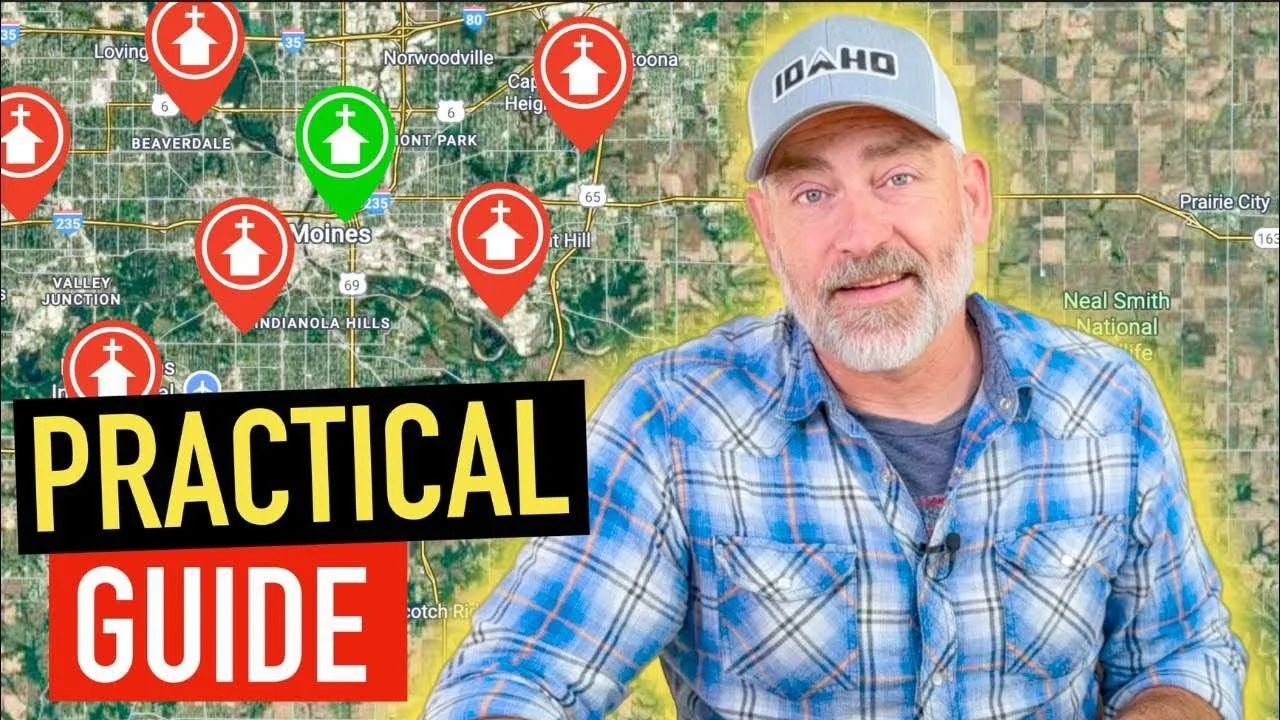Avoid Churches That Pray Like This
Have you ever sat through a church service and wondered, what just happened?
Maybe the prayers were so formal that it felt like they were reading a script. Maybe the prayers were chaotic, with everybody praying all at the same time. Maybe they were even praying to saints or to angels.
If you've ever felt confused by church prayer, you are not alone. But when we simply open the Bible, the confusion clears up, and finding a faithful church becomes a lot easier.
That is why we have created this series—so that you can recognize a church that truly follows Jesus and the pattern we see in the New Testament. If you missed the previous articles, you can find them linked at the bottom of this one.
Today, we're going to be focused on how churches should pray when they gather together every first day of the week. Now, this isn't a comprehensive study on all different kinds of prayer, but it's simply a guide to help you spot biblical prayer in church assemblies.
So, let me give you a three-step plan on what to look for:
Who are they praying to?
Who is leading the prayers?
What are they praying for?
1. Who Are They Praying To?
The Bible is really clear that our prayers should be directed to God. This is specifically what Jesus said when he was asked by his disciples how to pray.
"Lord, teach us to pray, as John taught his disciples." And he said to them, "When you pray, say, 'Father, hallowed be your name." (Luke 11:2 | ESV)
We also see this in Matthew 6:9 and many other passages that make it clear we ought to direct our prayers to God the Father (John 15:16; 16:23; Ephesians 1:3; 3:14; 5:20; Colossians 1:3; 3:17; James 1:5).
Now, these prayers should be offered in the name of Jesus—that is, by His authority. That is specifically what Paul said:
"Giving thanks always and for everything to God the Father in the name of our Lord Jesus Christ." (Ephesians 5:20 | ESV)
We also see the same idea communicated over in Colossians 3:17 and many other passages as well (John 14:6, 13, 14; 15:16; 16:23, 24, 26; 1 Timothy 2:5; 1 Peter 2:5). I encourage you to look them up and see for yourself.
There is no command, no example, and no necessary inference in Scripture authorizing us to pray to angels, to saints, to Mary, or to the dead. And so, if a church is doing that, it is not following the biblical pattern, and you should avoid it.
2. Who Is Leading the Public Prayers of the Assembly?
First of all, we should notice that in 1 Corinthians 14:26–40, when the congregation is assembled, things are to be done decently and in order. When people are speaking, they ought to speak one at a time—not all at once. It is best that one person at a time lead the assembly in prayer.
We should also notice that in 1 Corinthians 14:26–40, men ought to lead the prayers, since women are to remain silent in the churches. We also see this over in 1 Timothy chapter 2, where Paul reinforces this point, saying that women are not to teach or have authority over men. Instead, they are to remain quiet.
And this does not devalue women in any way. It simply reflects God's design for worship roles within His church.
So, what are the takeaways from point number two? Look for a church where the men lead the congregation in prayers, and avoid churches where women lead, or where the prayers are given all at once in some kind of chaotic setting.
3. What Is the Content of Their Prayers?
In the New Testament, we see four main elements of prayer:
Adoration: Saying good things about God. Praising God for who He is, His power, and His nature.
Confession: Confessing our sins before God and our reliance on Him.
Thanksgiving: Thanking God for what He has done, what He is doing, and what He will do for us.
Supplication: Asking God for things or help, either for ourselves or for other people.
We should avoid any church that is asking for things that are clearly against God's revealed will. It could be things as blatantly wrong as, "Please God, bless Brother Bob and Brother Joe in their new marriage to one another." Obviously, that's ridiculous.
Most churches are not praying things that extreme, but you would be surprised at what some people will say "amen" to without really thinking about it.
Always test what is being said in prayers against God's Word. And if it goes against God's Word, don't join in.
If we don't weed out unbiblical practices, we risk praying to the wrong person, undermining congregational unity with empty or disorderly worship, and potentially having our prayers become an abomination to God.
Prayer is how we talk to God. And if we don't take that seriously, we risk dishonoring Him—even while we're claiming to worship Him.
But when we pray the way that Jesus and His apostles taught us to pray, we can be confident that God hears us while we engage in true worship. And it feels so good to be part of a congregation that truly honors God in their prayers. Those congregations are out there. You can find them.
If you live near us, we would love to have you come worship with us. Check out our Contact page where you can get all of the details that you need.







